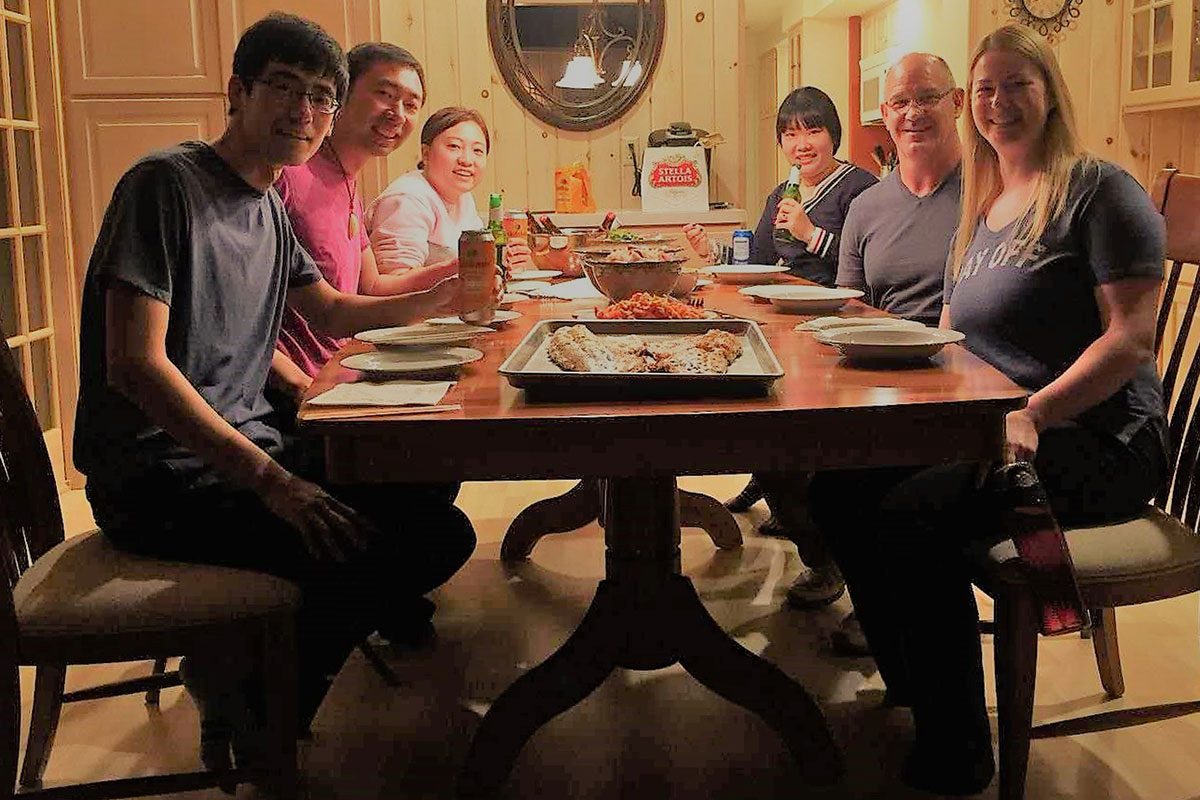
The welcome party at the Airbnb that Bin Lei stayed at in Minneapolis.
Enhancing cultural awareness, building skills
Register now for the Intercultural Development Leadership Program, free for students
The key to intercultural communication is respecting each other, says Applied Human Resource Management student Bin Lei.
“We don’t have the same background and experience … [but] I believe that if you respect everyone, you will receive respect back. That’s a key element for intercultural communication and leadership.”
Bin’s reflection was the result of his participation in the Intercultural Development Leadership Program at the U of M’s International Centre.
The winter term of the program starts Jan. 31. Open to all students, this eight-session program combines group sessions and workshops delivered by International Centre staff and guest speakers.
The free program is open to students who would like to enhance their own cultural awareness while developing intercultural skills and building a stronger sense of self-confidence that you can be taken beyond the classroom.
Last term’s program participants strengthened their skills in leadership, public speaking, conflict resolution, communication and facilitation.
Chimezie Eleme, an MBA student, says, “The intercultural competencies developed would help one to be culturally self-aware and equipped to resolve conflicts, negotiate successfully and lead a transformational change. Diversity is that synergy that optimizes our potential.”
Co-Curricular Recognition is provided to all participants who complete and meet all the requirements of the program.
Reflections by other students who have completed the Intercultural Development Leadership program
 “This is a simple photo that combines three pictures from the same place but at different times (fall, winter and summer seasons). In this photo, the trees, for instance are obviously the same trees during these different times. The trees themselves do not change as one might think when looking at this photo. What actually changed, however, are the climate and the environment around the trees. This change is what forces the trees to change their appearance.
“This is a simple photo that combines three pictures from the same place but at different times (fall, winter and summer seasons). In this photo, the trees, for instance are obviously the same trees during these different times. The trees themselves do not change as one might think when looking at this photo. What actually changed, however, are the climate and the environment around the trees. This change is what forces the trees to change their appearance.
We, as human beings, are like these trees; we live in and come from different cultures and backgrounds, and that makes us behave differently in some situations, but that does not change the fact that we are all humans. As a conclusion, we may come from different cultures, but that does not change the fact that we are all brothers and sisters in humanity.”
-Hisham Alawi, M.Sc. Computer Science student, second year
 “This is a traditional Shanghai Cuisine, Shanghai Scallion Oil Noodle (Cong You Ban Mian). It looks like a simple Chinese dish. But actually, the ingredients are from different parts of the world. Green onions from Mexico, noodles from China, canola oil from Canada and soya sauce from Japan. Interestingly, those exotic ingredients can be perfectly matched to make such a tasty dish.
“This is a traditional Shanghai Cuisine, Shanghai Scallion Oil Noodle (Cong You Ban Mian). It looks like a simple Chinese dish. But actually, the ingredients are from different parts of the world. Green onions from Mexico, noodles from China, canola oil from Canada and soya sauce from Japan. Interestingly, those exotic ingredients can be perfectly matched to make such a tasty dish.
That dish can be any of us. We are from different parts of the world, all studying in Winnipeg now, and accepting the people with different cultural backgrounds. Intercultural Development Leadership Program is THAT cooker who teaches us how to make this dish nice and easy.”
-Xudong Chen, M.Sc. Management student, second year
Application Deadline Extended
Friday, Jan. 26, 2018
Application Instructions: Applications are submitted through UMCommunityLINK
https://communitylink.umanitoba.ca/submitter/form/start/11146
Research at the University of Manitoba is partially supported by funding from the Government of Canada Research Support Fund.






